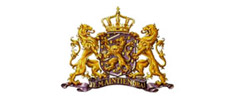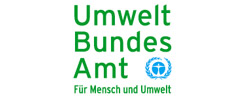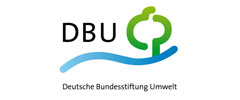Ecological Sanitation very prominent at the CSD-13
Ministers of Sweden and Uganda and the WASH campaign support Ecosan
29.04.2005 |Anna Tsvekova

Ukrainian girl using the new ecological sanitation toilets in the school of Gozhuly village (Poltava) built by MAMA-86 and WECF
see also photos of CSD+13
Side events on ecological sanitation
One of the interesting part of the CSD-13 and really interactive events were the side events.
In the CSD13 Decision document the term “ecological sanitation” is included. This new approach of sanitation was very well presented at 3 Side Events during the Program of the CSD-13.
Today Sweden, Germany, Norway, China, Mexico are the world leaders of the eco-sanitation. Ecological sanitation provides a solution for waste management based on principals of sustainable use of natural resources (water, energy, nutrients), environment and health protection and economical affordability for the communities.
The high-level side event on ecological sanitation, organized by the Swedish Environmental Institute (SEI) included presentations by the Swedish Minister of the Environment and Ugandan Minister of Water. The SEI gave presentations on how within 8 years 1 million ecocan toilets have been build in China (a Chinese-Swedish cooperation project) and showed some first pictures of the first multi-storage houses with ecosan toilets currently being build in inner-Mongolia. See www.ecosanres.org . The unit cost of the chinese toilet houses is 50 Euro.
Sascha Gabizon (WECF) and Anna Tsvetkova (MAMA-86) gave several interventions, looking at WECF and MAMA-86 experience with demonstration project on ecological sanitation in Ukraine and Romania, and now also in Uzbekistan and Armenia. First conclusions show that:
In the villages where WECF has installed dry urine-diversting toilets, there is keen insterest. Especially:
- in the fact that dry urine-diversting toilets can be build inside the house, unlike the usual pit-latrines which are outside – with –20 degrees in winter this is a clear improvement
- the toilets look good, as nice as water flush toilets, and don’t smell
- the system produces fertilizer, and with increasing poverty in the rural areas of the EECCA countries, this is a strong economic argument
However, WECF has also encountered some barriers:
- local production of urine-diverting toilet-slaps needs to be developed to allow upscalling and to tender to local tastes
- access to long-term payback low-interest credits for poor people is NOT available in EECCA countries, and poor families can not spare 2 months salaries for installing a new toilet
- there is a legal void in most countries concerning the use of ecosan products (urine as fertilizer, and compost as soil improver) in agriculture, it is time that the WHO announces it’s new guidelines on safe use of ecosan products
- social empowerment and capacity building is necessary, especially of women and women’s organizations, as mindsets need to change
- currently the PRSP processes do NOT prioritise water and sanitation, the World Bank is even starting a large project on unsustainable ‘sceptic tanks’ in e.g. Romania
- Ecosan leaflet
- Guidelines on safe use of ecosan products
Meeting WECF team with Norwegian University Life Sciences www.ecosan.no
At the CSD -13 WECF participated with a team of the representatives of WECF water network members from different 6 NGOs from Armenia (Elena Manvelian AWHHE and Karine Danielyan), the Netherlands (Sascha Gabizon – Director WECF), Ukraine (Anna Tsvetkova – MAMA-86), Uzbekistan (Gulbahar Izentaeva Mehriban) and Muborak .
This team actively participated in the all eco-san side events and used the option to discuss with experts from Sweden, Norway and Mexico the different aspects of the eco-san upscalling in the ECCAA region. On 22 April the WECF team had meeting with the experts from Norwegian University Life Sciences, leaders in ecological sanitation, and agreed on future collaborate on the eco-sanitation development in the ECCAA region.
WASH Campaign
On 19 April 2005 the WASH Round table “Mobilizing Women Leaders for the MDGs” took place at the CSD-13. It was organized by WSSCC responding to the UN Declaration on the “Water for Life International Water Decade, 2005-2015”. This UN Declaration calls for “a greater focus on women as managers of water to help achieve internationally agreed water-related goals”. WSSCC has therefore established the “Women Leaders for WASH” initiative. Ministers Hilde F. Jonhson of Norway and Maria Mutagamba of Uganda launched this initiative. WASH supporter Ms. Nana Annan (wife of Kofi Annan, UN Secretary General) opened the round table dialoque.
The WECF team had a short meeting with WSSCC director Dr. Gourisankar Ghosh and expressed WECF’s Water team to join WASH campaign and to work together on Sanitation and Hygiene issues in the EECCA region. See www.wsscc.org

































